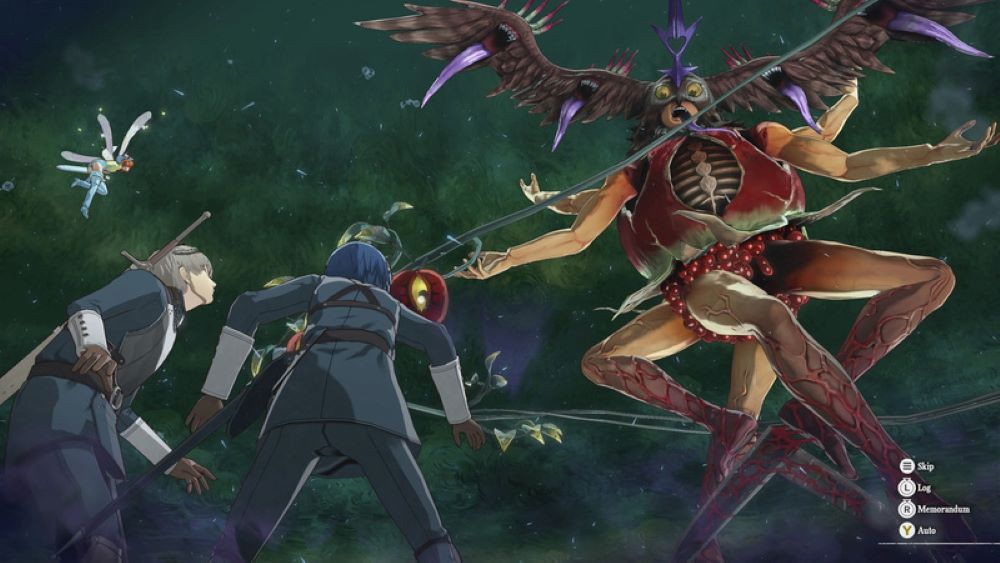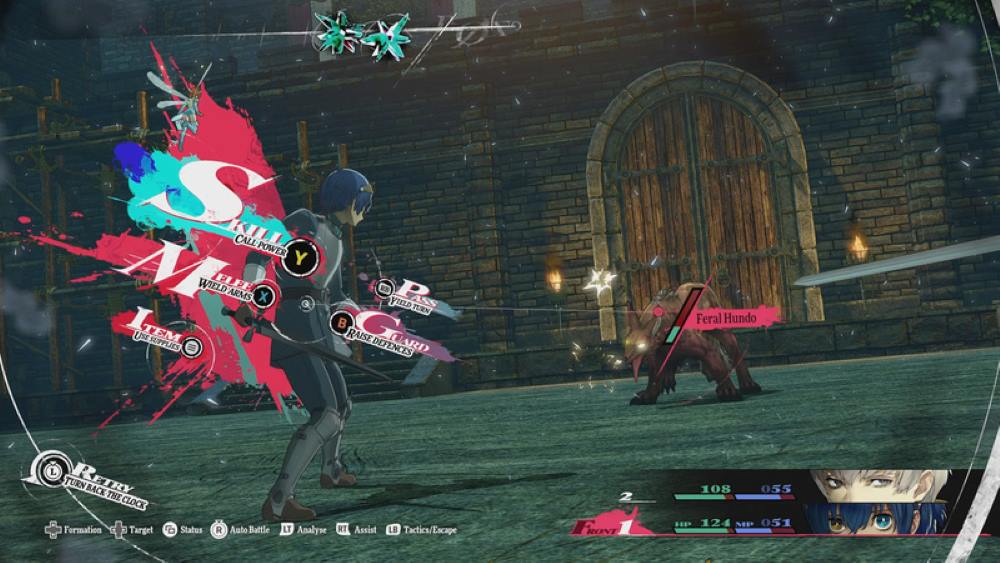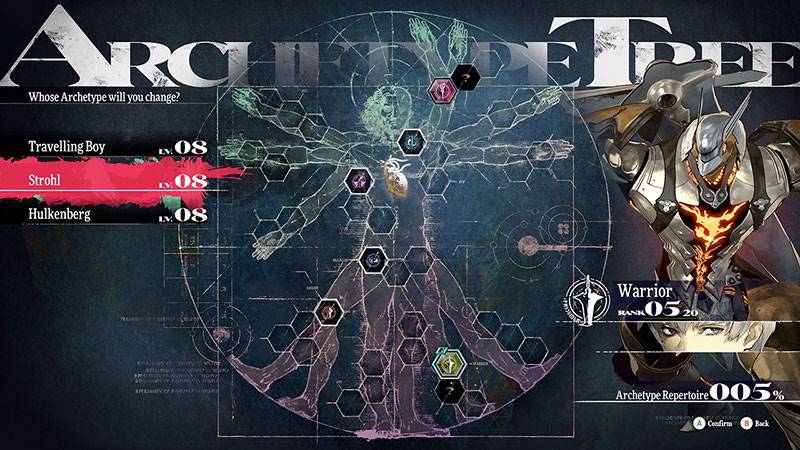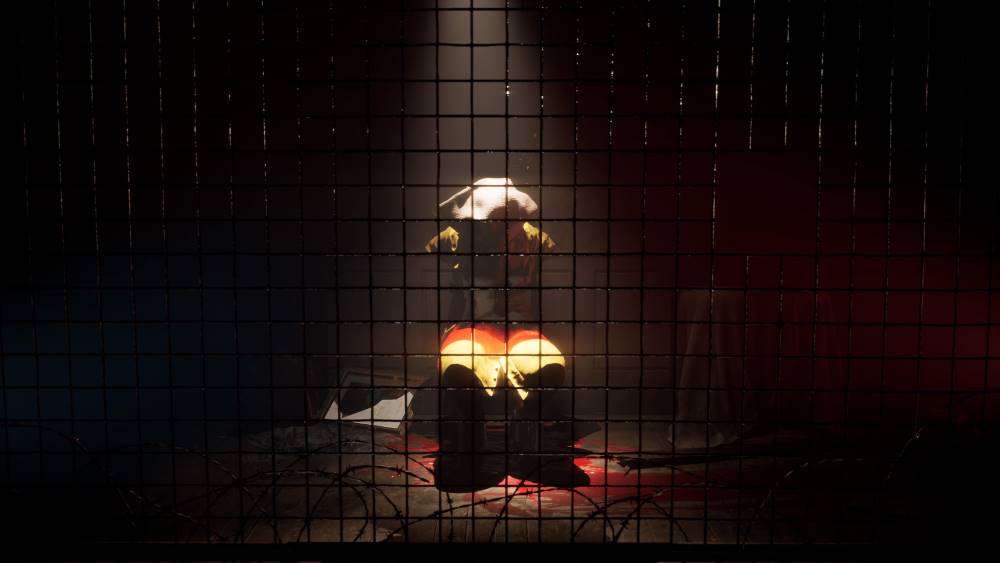After Playing Metaphor: ReFantazio, The Wait is Simply Unbearable
One of the highlights of the Philippine GameDev Expo 2024 was Atlus taking the main stage to present their highly anticipated upcoming JRPG, Metaphor: ReFantazio. This new IP marks a radical departure from their well-known series like Shin Megami Tensei and its spinoff Persona, offering an ambitiously epic high fantasy story while retaining Atlus’ signature features.
Scheduled for release on October 11, 2024, across multiple platforms, we got another chance to try an early build of the game. After playing it back in Summer Game Fest, we took to the controller again to play through three modes: Scenario, Dungeon, and Boss Challenge, each showcasing different aspects of Metaphor.

Story Time
The first sequence takes us in control of Metaphor’s nameless protagonist, who sets out to meet a certain person. However, things quickly go awry, leading to a fateful encounter with another main character, Sthrol. This section features a familiar staple for those who have played previous Persona games: during a brief conversation with your Fairy companion, Gallica, you can choose your responses, ranging from honest to sarcastic.
Despite the limited time with this mode, we glimpsed the world of Metaphor. While we already knew the premise—a mad race for the throne following the king’s death and the Protagonist’s journey to save his friend, the Prince—we also saw the political landscape of the United Kingdom of Euchronia, particularly the public’s prejudice against the protagonist, who belongs to the Elda Tribe.
After meeting Sthrol, we eventually faced one of the game’s monsters, which must be seen to be believed. This creature, once human, is a grotesque perversion of the human body. We got a taste of the battle system here, but that is better described in the second mode of the playable demo.

Let’s Battle!
No Atlus game is complete without a dungeon crawling sequence, and Metaphor: ReFantazio is no exception. In this demo, we played as the Protagonist, accompanied by main characters Sthrol and Hulkenberg. We encountered an NPC in the dungeon searching for her friend trapped inside. Regardless of our response to this NPC, we accepted a subquest to find her friend and ventured into the dungeon.
It was intriguing to see how Metaphor combines real-time action with traditional turn-based combat, and we had a lot of questions when this concept was first revealed. Thankfully, we found our answers. On one hand, it felt like an action RPG, allowing us to freely control the Protagonist, attack enemies in real-time, and roll to the side, reminiscent of a Musou game. According to the tutorial, this approach is most effective against weaker enemies.

After a series of attacks, we received a button prompt that transitioned us to traditional turn-based combat, where we could control the entire party. This mode showcased familiar Atlus mechanics, with a combat UI reminiscent of Persona 5, including an option to move front and back. The Archetypes felt like Personas, with each party member controlling one in battle.
A new feature was the Synthesis option, where party members could offer assistance in exchange for taking up more turns. This hybrid combat system was engaging, allowing us to gain advantages or disadvantages in combat or quickly finish off weaker enemies to save time.

We must also mention the catchy battle theme that played during these fights. Music has always been a highlight in Atlus JRPGs, and composer Shoji Meguro doesn’t disappoint here. The battle theme is both catchy and epic, suggesting that Metaphor’s soundtrack will be one of its strongest aspects.
Don’t all Atlus games have epic soundtracks, anyway?
Big Fight Ahead
The third and final demo, ostensibly a Boss Fight, offered more insights into Metaphor’s gameplay. Set in the Protagonist’s Gauntlet Runner, players could freely walk around and interact with other characters, including Sthrol, with whom you could spend time maintaining your weapons. This mechanic is reminiscent of the Social Links/Confidant system in Persona, where a number of abilities can be learned as long as you clear up the pre-requisite skills.
As in Persona, you engage in conversations with Sthrol on various topics, and your responses yield different points that increase your closeness. Essentially, it’s about saying what you think your companion wants to hear to get a favorable reply. Similar to the Confidant system in Persona 5, maintaining weapons with your friend also boosts your stats. This section also demonstrated Metaphor’s familiar concept of time, as spending time with Sthrol advances the clock. After this, the main event begins.

Your ship is suddenly attacked by a large monster, forcing the party into a confrontation. The Dungeon demo of Metaphor already provided a taste of the combat system, and in this case, it transitioned directly into a turn-based battle against a grotesque human/octopus hybrid boss with multiple tentacles that needed to be dispatched for a clear shot at the main head/body.
Another hallmark of an Atlus game is its spell system. While Metaphor doesn’t use familiar elemental terms like Garu, Agi, or Bufu, it retains some spell names like Dekaja and Marakukaja. For fans of Atlus’ games, these familiar names provide a sense of comfort despite Metaphor being a brand-new IP.
After experiencing all three playable sections once again, we can’t help but feel that Metaphor: ReFantazio is shaping up to be another amazing new series for Atlus. Despite feeling familiar due to its stylish UI and many of its game systems that are similar to previous titles, the addition of new mechanics and features seems enough to garner interest and intrigue, especially when talking about the brand-new high fantasy setting.
Metaphor: ReFantazio launches on October 11, 2024, on the PS5, PS4, Xbox Series X|S, and PC.




